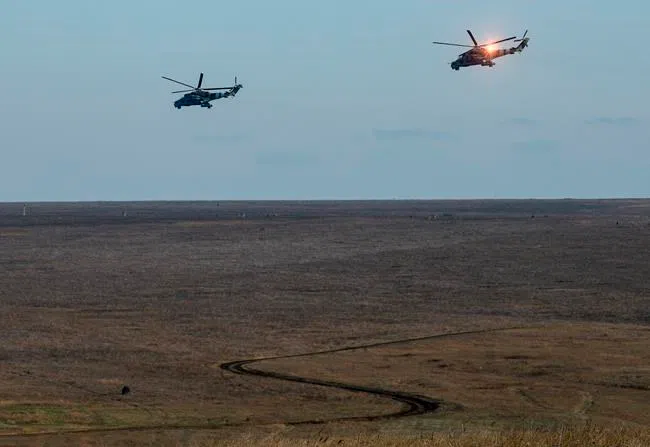
Ukraine urges NATO to deploy ships in dispute with Russia
KIEV, Ukraine — The president of Ukraine is urging NATO to deploy warships to the Sea of Azov, a proposal that has been sharply criticized by Russia as a provocation that could worsen tensions between the two countries following a weekend confrontation in the waters off the Crimean Peninsula.
U.S. President Donald Trump said Thursday he was cancelling a planned meeting with Russian President Vladimir Putin at the G-20 summit in Argentina because Moscow has not released the Ukrainian vessels and sailors it seized.
In an interview published earlier Thursday with the German daily Bild, Ukrainian President Petro Poroshenko laid out his hope that NATO would “relocate naval ships to the Sea of Azov in order to assist Ukraine and provide security” against Putin’s expansionist ambitions.
The Russian coast guard fired on and seized three Ukrainian vessels and their crews on Sunday. Russia alleged the Ukrainian vessels had failed to obtain permission to pass from the Black Sea into the Sea of Azov through the Kerch Strait. Ukraine insisted its vessels were operating in line with international maritime rules in the strait, which separates Russia’s mainland and the Crimean Peninsula that it annexed from Ukraine in 2014.
